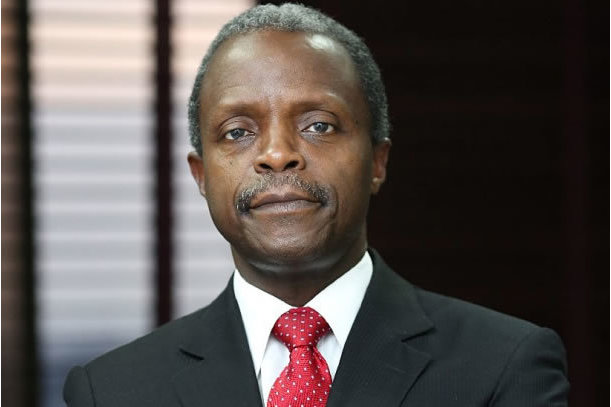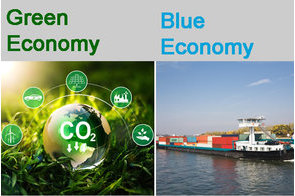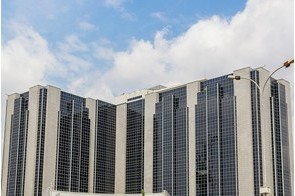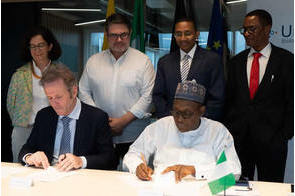Latest News
Nigeria falls two places on EY’s 2017 Africa FDI ranking

News Highlight
Africa’s largest economy was ranked 17th in the 2017 Africa Attractiveness Index (AAI).
Nigeria has fallen two places on Ernst & Young’s (EY) latest Africa Attractiveness Index (AAI) – which measures foreign direct investment (FDI) attractiveness of African countries. Africa’s largest economy was ranked 17th in the 2017 ranking, compared to being ranked 15th in 2016.
In the index, released today, EY attributes the decline in Nigeria’s FDI attractiveness to the country’s macroeconomic challenges – including the first recession in 25 years – arising mainly from the slump in oil prices.
“With the plunge in crude prices, Africa’s largest oil exporter has been hit by a scarcity of foreign exchange, impacting businesses that are already grappling with issues, including insufficient power supply and complexity in paying taxes,” EY said. “Nigeria’s business environment is in urgent need of improvement, considering the country’s 169th ranking on the World Bank’s Ease of Doing Business Index 2017.”
Despite its declining FDI attractiveness, EY said Nigeria still attracted the fourth largest share of total FDI projects in Africa, as total FDI projects in Africa reached 676 projects last year, down 12.3 percent from 2015.
Nigeria attracted 51 FDI projects in 2016 (or 7.5 percent of total FDI projects) compared to 53 projects in the previous year. By comparison, South Africa attracted 139 projects (20.6 percent share); Morocco, 81 projects (12 percent share); and Egypt, 79 projects (11.7 percent share).
The total FDI projects in Africa created 129,150 jobs across the continent in 2016, with Nigeria accounting for only 4.9 percent. (Morocco accounted for 19.2 percent; Egypt, 14.9 percent; South Africa, 14.2 percent, and Kenya, 1.2 percent).
On the basis of total African FDI value of $94.1 billion, Nigeria accounted for 6.7 percent in 2016. (Egypt accounted for 43.5 percent; South Africa, 8.1 percent; Morocco, 7 percent; and Kenya, 1.2 percent).
“On a more positive note, the sheer size of the Nigerian market, and its diversification initiatives have led to a significant shift in the nature of FDI to the country,” EY said. “Should progress be made on various dimensions of the AAI (notably business enablement, governance and human development), Nigeria remains well-placed to become the largest FDI market in Africa over the next decade.”
The top ten countries on EY’s AAI 2017 are: Morocco, Kenya, South Africa, Ghana, Tanzania, Uganda, Cote d’Ivoire, Mauritius, Senegal, and Botswana. The major sources of FDI inflow in Africa are: United States, France, China, United Kingdom, and the United Arab Emirates. South Africa is the largest intra-Africa FDI investor.
According to EY, Africa’s FDI inflows rose to $94.1 billion in 2016, up from $71.3 billion a year earlier. The advisory firm said the increase in FDI has far less to do with the continent’s fundamentals than it does with a world characterized by heightened geopolitical uncertainty – with Brexit and policy changes of President Donald Trump – and greater risk aversion amongst investors.
EY said foreign investors are more focused on Africa’s hub economies with Egypt, Kenya, Morocco, Nigeria and South Africa (the key hub economies) collectively attracting 58 percent of the continent’s total FDI projects in 2016.
However, a new set of FDI destinations are emerging, with Francophone (mainly Cote d’Ivoire and Senegal) and East African (mainly Tanzania, Uganda, Rwanda and Ethiopia) markets becoming of particular interest.
EY’s AAI measures the FDI attractiveness of 46 African countries, constructed on the basis of six broad pillars: macroeconomic resilience, market size, business enablement, investment in infrastructure and logistics, economic diversification, and governance and human development.
Related News
Latest Blogs
- AML/CFT regulations and data protection require balance in regulating cryptocurrency
- It's time for honest discussions on Nigeria's security architecture
- Driving economic growth through green transition in Nigeria
- CBN is fighting inflation instead of stagflation
- Why electricity privatization failed (2)
Most Popular News
- NDFF 2024 Conference to boost Nigeria’s blue and green economies
- IFC, partners back Indorama in Nigeria with $1.25 billion for fertiliser export
- CBN increases capital requirements of banks, gives 24 months for compliance
- CBN settles backlog of foreign exchange obligations
- Univercells signs MoU with FG on biopharmaceutical development in Nigeria
- Ali Pate to deliver keynote speech at NDFF 2024 Conference






